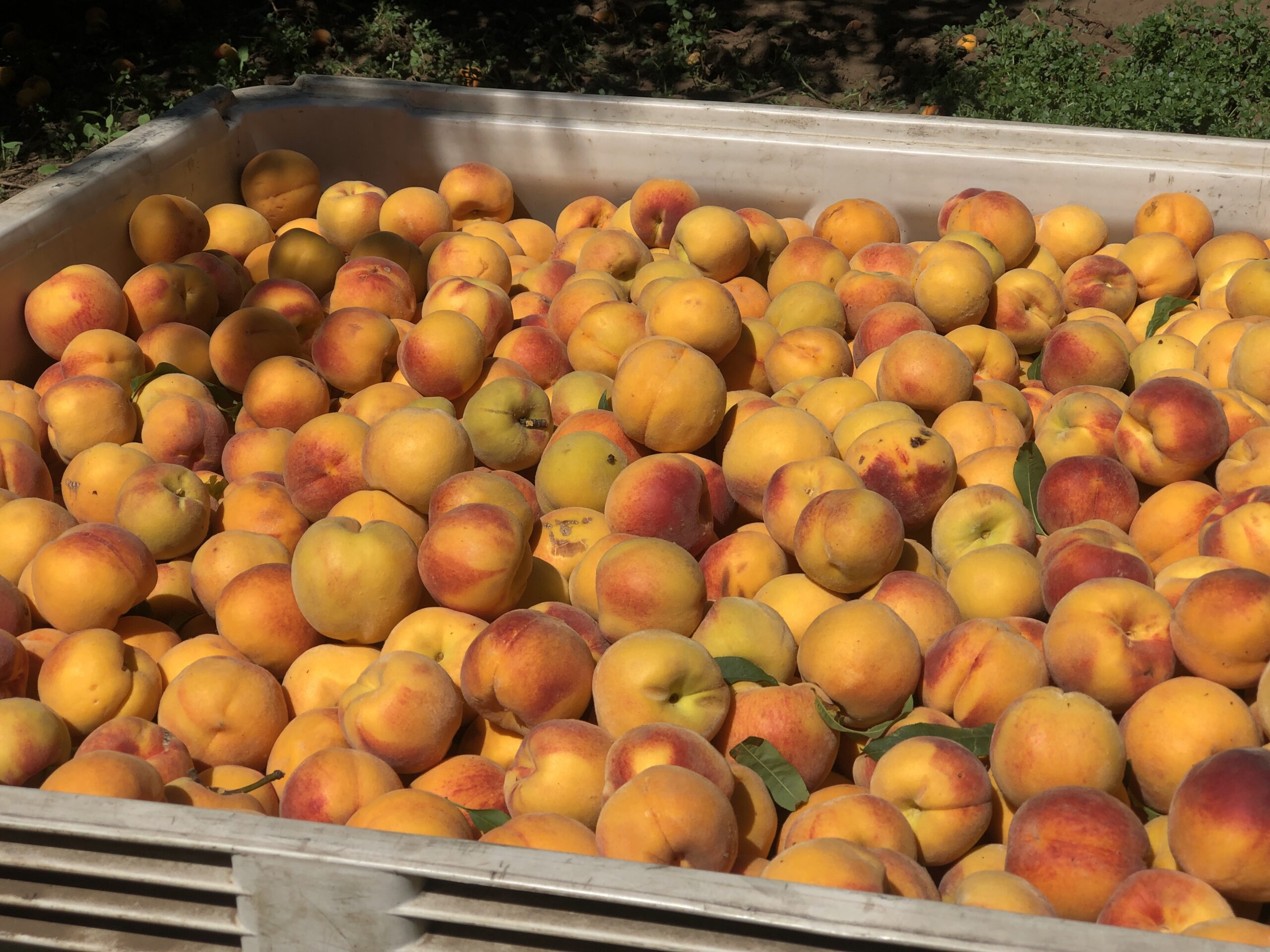The Peach Place
Contributed by Jennifer Harrison
It’s 6 am and your peach cobbler is calling. Not the dessert itself, but the fruit that goes in it, as peach season has officially hit the Sacramento Valley. On harvest days, the picking starts early.
For over sixty years Filters Farms Inc. has been growing peaches in Sutter County between Live Oak and Yuba City. Fourth-generation grower Steven Filter explains why this is such a sweet spot for growing peaches
Dirt and Degrees
“In our area, we are blessed with some of the best soils in the world. We also have some of the best micro-climates for peaches in the fact that we get plenty of cooling hours during the winter, and then a favorable spring and during bloom time we don’t end up getting a lot of rain” said Filter.
What’s crucial? Summer temperature consistency and that depends on Mother Nature.
“Over the last month we’ve gone from 105-degree temperatures to 70 degrees, and it has done that multiple times. In a perfect world, we like mid-90 degrees, a real flat temperature curve, that’s when these peaches grow a lot.”
Speaking of growing a lot, peaches are prolific here. In recent years Sutter County peach production doubled the total production of the entire state of Georgia.

Clinging to Varieties
Filter Farms themselves grow over ten different varieties of peaches, which all fall under the Clingstone, commonly called Cling category. Their Loadel peaches are usually the first to ripen.
“There are Freestone and Cling peaches. Freestones are what you find at the farmers market and your local grocery store. In Freestone, the pit pulls out completely clean,” described Filter.
Cling peaches, on the other hand, have flesh that clings or sticks to the pit, making them perfect for canning and processing. Filter Farms peaches are grown for that purpose and go from tree to cannery within 24-36 hours. Ultimately fruit the ends up as an ingredient in canned peaches and fruit cups.
Fruit of their bounty
Peach harvest stretches from July through September, as the different varieties ripen at different times.
“They are all staggered, right now some peaches are little, tiny golf ball sized and green as can be,” said Filter.
When each variety’s harvest hits, the fruit is picked at peak ripeness, and done by hand, not by a machine.
“We’ve put in all this work all year, then picking the fruit off the tree, when they are warm from sitting in the sun, it’s so satisfying. I remember being a little kid when we planted this orchard!”
One has to wonder, is there a favorite family recipe?
“I probably have to say my wife’s cobbler”
Again, the cobbler is calling.

